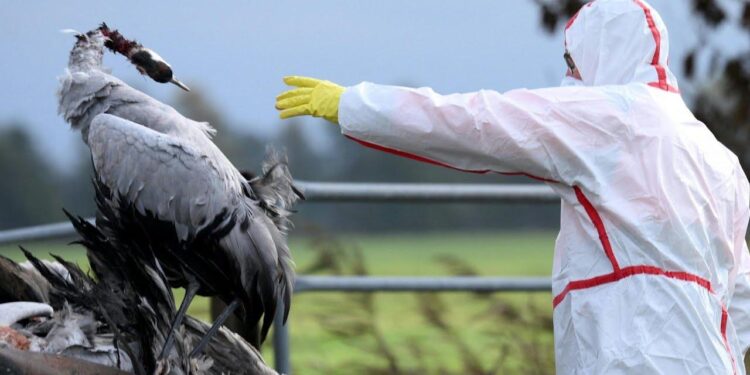Hungary has confirmed an outbreak of avian influenza on a duck farm, according to a report by the World Organisation for Animal Health (WOAH) cited by Reuters. The detection of bird flu raises concerns about the potential spread of the virus within the country’s poultry industry and prompts authorities to implement containment measures. This development adds to ongoing efforts across Europe to monitor and control avian influenza outbreaks amid increasing cases in wild and domestic bird populations.
Hungary Confirms Bird Flu Outbreak on Duck Farm Raising Alarms for Poultry Industry
Authorities in Hungary have officially confirmed an avian influenza outbreak at a prominent duck farm, sending ripples through the country’s poultry sector. The World Organisation for Animal Health (WOAH) confirmed the case, highlighting the potential risks for both domestic and export markets. Prompt measures have been initiated to contain the spread, including quarantine zones and enhanced biosecurity protocols. Industry experts warn that without swift action, the economic impact could be significant nationally and across European trade networks.
Key control measures implemented:
- Immediate culling of affected bird populations
- Strict movement restrictions on farms and transport vehicles
- Intensified monitoring and surveillance across adjacent farms
- Disinfection and sanitation of premises
| Affected Location | Bird Type | Number Infected | Containment Status |
|---|---|---|---|
| Northern Hungary Farm | Ducks | Approx. 4,500 | Active Quarantine |
WOAH Details Virus Strain and Transmission Risks Amid Ongoing Investigations
The World Organisation for Animal Health (WOAH) has identified the virus strain responsible for the recent outbreak on the Hungarian duck farm as a highly pathogenic avian influenza (HPAI) strain. This particular variant is known for rapid spread among waterfowl and has raised concerns about its potential to jump to other bird species. Genetic sequencing is ongoing to determine if there are any mutations that could impact transmission dynamics or increase zoonotic risks.
Current investigations highlight several key transmission risk factors that may influence the outbreak’s trajectory:
- Close proximity of domestic birds facilitates easy virus transfer.
- Wild migratory birds acting as natural reservoirs and carriers.
- Shared water sources and contaminated equipment potentially spreading the virus.
- Human activity and farm workers possibly aiding indirect transmission.
| Transmission Route | Risk Level | Preventive Measures |
|---|---|---|
| Direct contact between birds | High | Isolation & biosecurity |
| Contaminated water/feed | Moderate | Sanitation & water treatment |
| Human-mediated spread | Low to Moderate | Protective clothing & hygiene |
| Wild birds interactions | Variable | Restrict outdoor access |
Experts Urge Strengthened Biosecurity Measures and Immediate Response Protocols
Global veterinary and health experts have emphasized the urgent need for enhanced biosecurity protocols following the confirmed bird flu outbreak on a duck farm in Hungary. With avian influenza viruses known for their rapid spread and potential impact on both wild and domestic bird populations, specialists stress that farms must implement rigorous sanitation, controlled access zones, and continuous monitoring systems to curb contagion risks. These measures are crucial to protecting not only animal health but also the agricultural economy and potentially public health.
The World Organisation for Animal Health (WOAH) recommends immediate activation of response strategies that include:
- Rapid quarantine procedures to isolate infected sites;
- Systematic testing and surveillance in adjacent farms and wild bird habitats;
- Enhanced communication between local authorities and international bodies;
- Comprehensive culling plans when necessary to prevent further spread.
| Key Biosecurity Measures | Purpose |
|---|---|
| Disinfection Stations | Prevent pathogen transfer via footwear and equipment |
| Controlled Visitor Access | Minimize external contamination risks |
| Regular Health Monitoring | Early detection of symptomatic birds |
| Waste Management Protocols | Safe disposal of potentially infectious material |
Final Thoughts
The detection of bird flu at a Hungarian duck farm marks a significant development in the ongoing surveillance of avian influenza in Europe. Authorities are closely monitoring the situation to contain the outbreak and mitigate potential risks to both animal and public health. Further updates are expected as investigations continue and preventative measures are implemented to curb the spread of the virus.
















